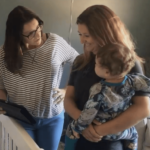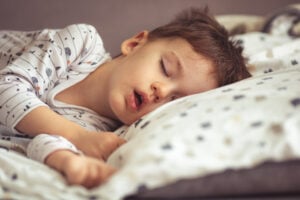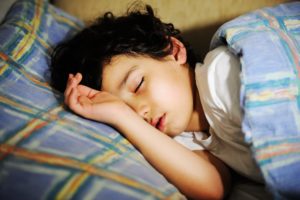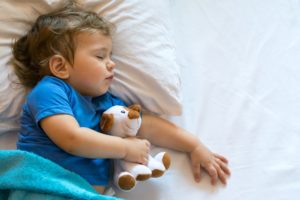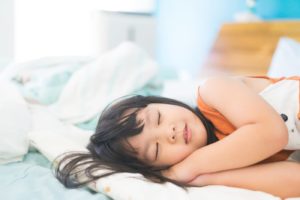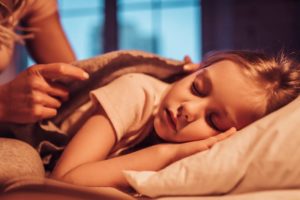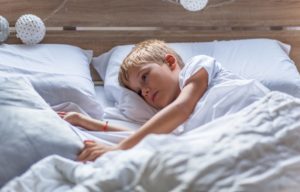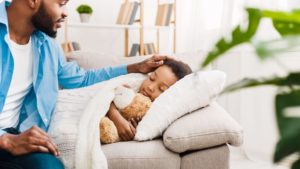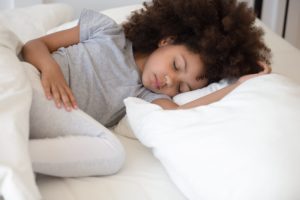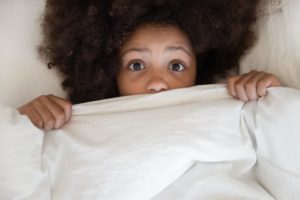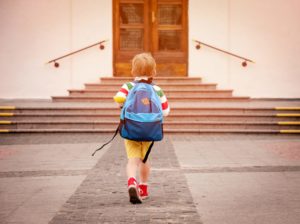When you buy through our links, we may earn a commission. Products or services may be offered by an affiliated entity. Learn more.
Improve Your Child’s School Performance With a Good Night’s Sleep
Before a big test or presentation in school, you’ve probably given your child the classic advice to get a good night’s sleep.
Implicit in that recommendation is the recognition that sleep empowers effective thinking and school performance. However, the importance of sleep goes beyond just the night before an exam.
Getting consistent sleep is vital for children and adolescents who are experiencing significant brain development. Unfortunately, a significant number of students in elementary, middle, and high schools across the United States are failing to get enough nightly sleep.
Without enough sleep, children and teens can have problems with attention, memory, and problem-solving. Sleep deprivation can also contribute to emotional issues and behavior problems that may affect academic achievement.
Making sleep a priority is important for parents who want their children to succeed in school. Understanding the causes and consequences of poor sleep and knowing how to address it can allow parents to help children and teens in their academic pursuits.
Help Your Child Sleep Better With Pediatric Sleep Coaching
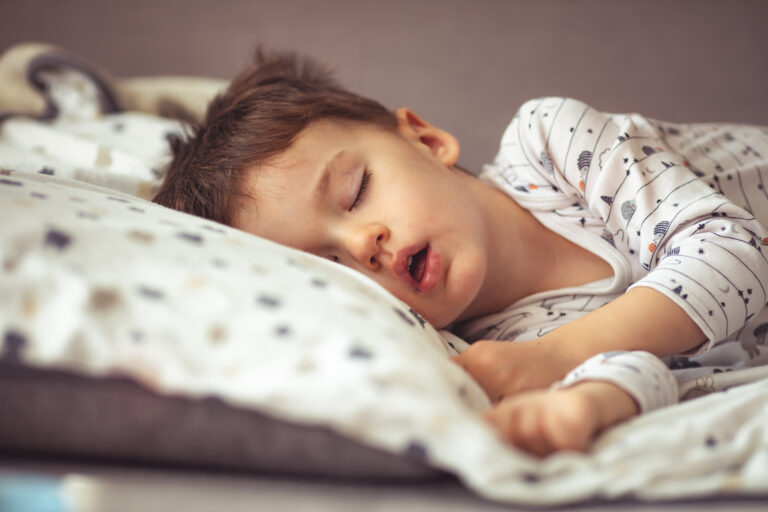
our partner at sleepdoctor.com
Learn More“Life-changing! My anxiety about my son’s sleeping habits were immediately reduced after talking to Sara. She went above and beyond to tailor a schedule to our goals, answer our questions, keep us on track, and check in to encourage us when we just thought we couldn’t do it anymore.”
Rachael B. – Verified Customer
Are Children and Teens Getting the Sleep They Need?
Sleep needs vary by age. For school-age children ages 6-12 years, 9-11 total hours of sleep per day is recommended. For teens, the recommended amount of sleep is 8-10 hours per day.
Unfortunately, researchers have found that many children in the United States are failing to get the sleep they need. As many as 25% of younger children are believed to suffer from poor sleep and excessive daytime sleepiness.
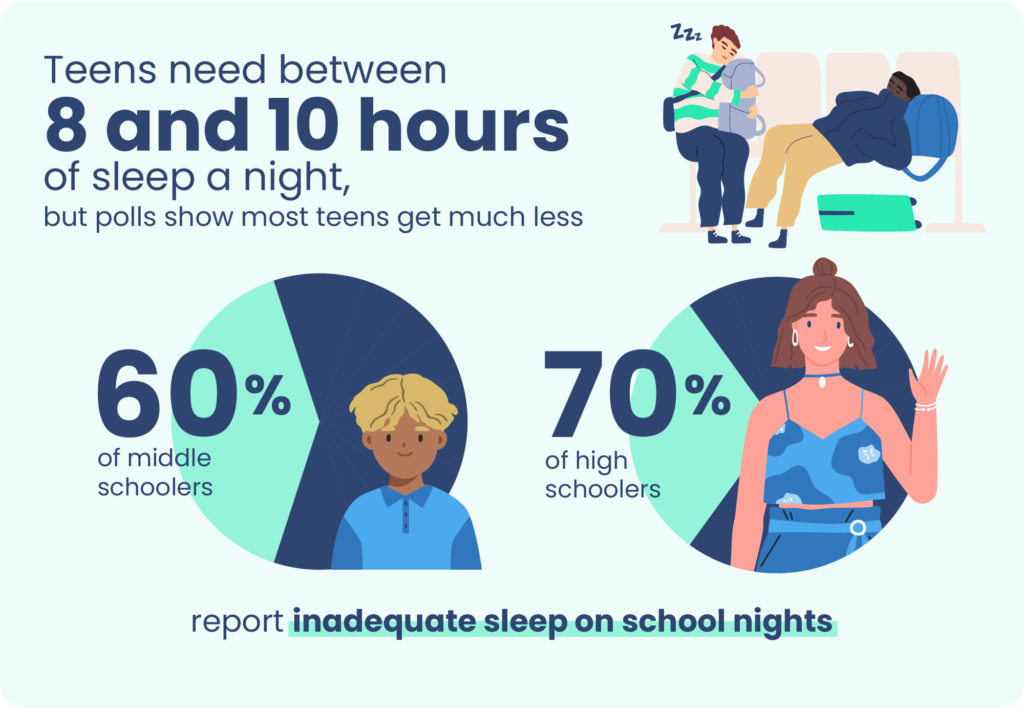
Sleeping problems are even more prevalent in adolescents. Data from the CDC indicates that over 57% of middle school students and 72% of high school students reported sleeping less than what was recommended based on their age. For as many as 23.8% of adolescents, the problem is significant enough to be considered insomnia, a serious sleep disorder that involves noticeable daytime impairment.
What Is the Effect of Poor Sleep on School Performance?
It is widely accepted by sleep experts that a lack of sleep reduces cognitive abilities and can harm school performance in children and teens.
The majority of research about sleep deprivation has been conducted in adults, but many of the same effects are believed to occur in younger people. Although fewer studies have examined lack of sleep in children, the existing evidence indicates that poor sleep can harm academic achievement in several ways.
A direct way that sleep and school performance are connected is through effects on mental function. Some known problems associated with lack of sleep include:
- Decreased attention. The ability to concentrate is vital to learning and academic achievement, but insufficient sleep reduces attention and focus.
- Impaired memory. Sleep provides a time for memory encoding, which is when the brain stores and strengthens the recollection of an image or thought. Without adequate sleep, memories may not be properly formed, and it may also be more difficult to accurately recall stored information.
- Slowed processing. Short sleep may reduce sharpness, slow reaction time, and hinder the ability to quickly take in and analyze information.
- Worsened sequential thinking. The ability to remember a series of steps, such as in a science experiment or when playing a musical instrument, is reduced when sleep is curtailed.
- Reduced creativity. Creative thinking relies on being able to make connections between diverse ideas, and some research has found that this type of mental activity is harmed by poor sleep.
Sleep deprivation can also detract from school performance because of various effects on mood and behavior:
- Excessive daytime sleepiness: Drowsiness during the day, including at school, can have considerable consequences for academic achievement. Dozing off for seconds at a time, known as microsleeps, can occur in the classroom, causing a student to fall asleep at their desk. In addition to interrupting learning, this may be viewed by teachers as a behavior problem.
- Poor decision-making: Limited sleep can hinder the development of the parts of the brain involved in making good decisions, increasing the likelihood of risky or unwise choices that can lead to disciplinary problems in school.
- Aggression: Some research in children has linked sleeping problems to a heightened risk of aggressive behavior, which may be especially worrisome when combined with sleep deprivation’s effects on mood.
- Irritability and mood: Quality sleep is correlated with healthy emotional regulation, which may make children and teens who fail to get enough sleep more likely to be irritable or upset.
- Hyperactivity: Insufficient sleep can affect attention and in one study was associated with levels of hyperactive behavior reported by teachers. Sleeping problems may exacerbate the symptoms of attention-deficit/hyperactivity disorder (ADHD).
- Depression and Anxiety: In both adults and children, sleep deprivation is associated with a higher risk of depression and anxiety, and these conditions can directly affect a child’s overall health and school performance.
Academic achievement may also be dragged down by missing school. Sleeping problems have been tied to increased absenteeism or tardiness in school. Behavioral factors may contribute to missed school time, and poor sleep is tied to physical problemslike lethargy, headaches, and pain that may contribute to absences due to illness.
How Does Sleep Deprivation Affect School Performance for Children of Different Ages?
Sleep is fundamental to health for children of all ages, including adolescents; however, sleeping problems and their effects on school performance can change based on age. Most notably, teenagers face unique sleep challenges that can give rise to difficulties in school.
A major problem that confronts adolescents is a biological change to their sleep timing that begins around the start of puberty. This change pushes back their internal clock, often by around two hours, making teens inclined to be “night owls.”
Because they go to bed later, many teens are unable to get enough sleep if they have to wake up early in the morning for school or other activities. As a result, average nightly sleep decreases by 40 to 50 minutes between the ages of 13 and 19.
Without enough rest, teens are more likely to suffer from the cognitive, behavioral, and physical effects of sleep deprivation that are detrimental to school performance. In addition, because they often feel most alert later in the afternoon or evening, many teens struggle with classes and exams early during the school day.
What Are Common Causes of Childhood and Adolescent Sleep Deprivation?
Many factors can lead to sleeping problems in children and adolescents, and in some cases, a combination of causes may be involved. Some of the most common contributors to sleeping problems for youth include:
- Inconsistent sleep schedules: Major fluctuations in bedtimes and wake times can make it harder to establish a pattern of steady nightly sleep. While some children can benefit from catching up on sleep during the weekend, this may throw off their ability to keep a stable sleep schedule on school nights.
- Lack of priority given to sleep: Children and their parents may fail to budget enough time for sleep every night, instead allocating more time to studying, social life, sports, or other activities.
- Excess use of electronic devices: It is increasingly common for children and adolescents to use cell phones, tablets, and laptops later in the evening. They also emit blue light, a type of light that can interfere with normal sleep.
- Sleep disorders: Children of different ages can be affected by sleep disorders including insomnia, sleep apnea and other breathing disorders, restless leg syndrome, and parasomnias like nightmare disorder and sleepwalking.
- Other health conditions: Sleep problems may be more likely in children and teens with a wide range of other conditions such as ADHD, autism spectrum disorder (ASD), depression, and anxiety. Stressful or challenging circumstances at home may also play a part in sleep deprivation for some children.
How Can Parents Help Their Children Get Better Sleep and Improve School Performance?
It’s natural for parents to want to do all that they can to support their children in school. Given the importance of sleep for academic performance, parents can make promoting good sleep a pillar of their child’s learning.
Better sleep often starts by first discussing sleep habits and the benefits of sleep with their children. Recognizing the value of quality rest for everyone in the family can be a jumping-off point for practical steps to improving sleep. As part of this process, parents should do their best to model good sleep habits, which can benefit parental health and serve as an example for their children.
A vital step for many families is making sleep a priority. Parents should create a daily schedule that accounts for school start times and other activities and budgets enough hours for children to get the recommended amount of sleep. Having a consistent schedule reinforces the importance of sleep and supports steady sleep habits.
Studies have found that children sleep better when their parents set a bedtime. Having this bedtime not only clarifies the daily schedule but also protects against other activities, even beneficial ones like studying, from gradually cutting into time meant for sleep. In addition to getting more sleep, bedtimes set by parents have been associated with better mood and less daytime sleepiness in children.
As an extension of the firm bedtime, parents can encourage their children to create a relaxing routine to get ready for bed. Following the same steps every night in order to relax and prepare for sleep has been found to benefit young children and is often recommended for people of all ages.
Part of getting ready for bed should mean stopping the use of electronic devices, including cell phones. Most experts advise that both children and adults stop using devices for an hour or more before bed, and if possible, the devices should be kept out of arm’s reach when in bed or out of the bedroom entirely.
Parents can also promote sleep by creating a relaxing sleep environment for their children. Like adults, children sleep better when they have a supportive mattress, comfortable bedding, and a bedroom that is dark and quiet. Parents can work hand-in-hand with their children to make sure that their sleep setting is calming and conducive to quality rest.
If sleeping problems are serious, persistent, or clearly affecting their child’s thinking or behavior during the day, then parents should speak with their child’s pediatrician. A doctor can determine if a child has insomnia, which is distinct from occasional sleeping problems, and make specific recommendations for treatment. A pediatrician can also review a child’s situation to determine if their sleep difficulties are related to an underlying sleep disorder or other health condition.

Still have questions? Ask our community!
Join our Sleep Care Community — a trusted hub of sleep health professionals, product specialists, and people just like you. Whether you need expert sleep advice for your insomnia or you’re searching for the perfect mattress, we’ve got you covered. Get personalized guidance from the experts who know sleep best.
References
9 Sources
-
Davis, K. F., Parker, K. P., & Montgomery, G. L. (2004). Sleep in infants and young children: part two: common sleep problems. Journal of pediatric health care : official publication of National Association of Pediatric Nurse Associates & Practitioners, 18(3), 130–137.
https://linkinghub.elsevier.com/retrieve/pii/S0891524503001500 -
Wheaton, A. G., Jones, S. E., Cooper, A. C., & Croft, J. B. (2018). Short Sleep Duration Among Middle School and High School Students – United States, 2015. Morbidity and Mortality Weekly Report, 67(3), 85–90.
https://pubmed.ncbi.nlm.nih.gov/29370154/ -
Donskoy, I., & Loghmanee, D. (2018). Insomnia in Adolescence. Medical sciences (Basel, Switzerland), 6(3), 72.
https://pubmed.ncbi.nlm.nih.gov/30200388/ -
Drago, V., Foster, P. S., Heilman, K. M., Aricò, D., Williamson, J., Montagna, P., & Ferri, R. (2011). Cyclic alternating pattern in sleep and its relationship to creativity. Sleep medicine, 12(4), 361–366.
https://linkinghub.elsevier.com/retrieve/pii/S1389945711000578 -
Bayes, D. M., & Bullock, B. (2019). Sleep Problems in School Aged Children: A Common Process across Internalising and Externalising Behaviours?. Clocks & sleep, 2(1), 7–18
https://pubmed.ncbi.nlm.nih.gov/33089186/ -
Hysing, M., Haugland, S., Stormark, K. M., Bøe, T., & Sivertsen, B. (2015). Sleep and school attendance in adolescence: results from a large population-based study. Scandinavian journal of public health, 43(1), 2–9.
http://journals.sagepub.com/doi/10.1177/1403494814556647 -
Short, M. A., Gradisar, M., Wright, H., Lack, L. C., Dohnt, H., & Carskadon, M. A. (2011). Time for bed: parent-set bedtimes associated with improved sleep and daytime functioning in adolescents. Sleep, 34(6), 797–800.
https://pubmed.ncbi.nlm.nih.gov/21629368/ -
Carskadon M. A. (2011). Sleep in adolescents: the perfect storm. Pediatric clinics of North America, 58(3), 637–647.
https://pubmed.ncbi.nlm.nih.gov/21600346/ -
Mindell, J. A., Li, A. M., Sadeh, A., Kwon, R., & Goh, D. Y. (2015). Bedtime routines for young children: a dose-dependent association with sleep outcomes. Sleep, 38(5), 717–722.
https://pubmed.ncbi.nlm.nih.gov/25325483/




